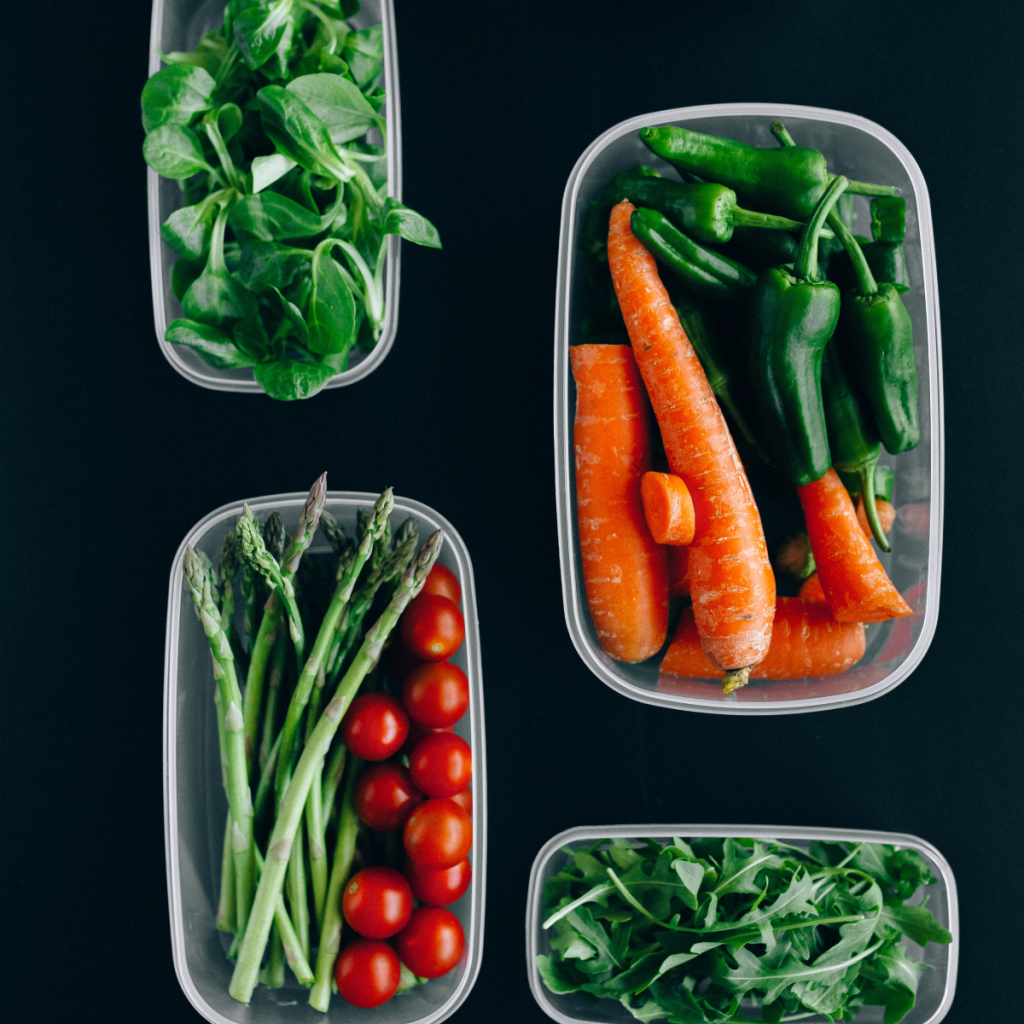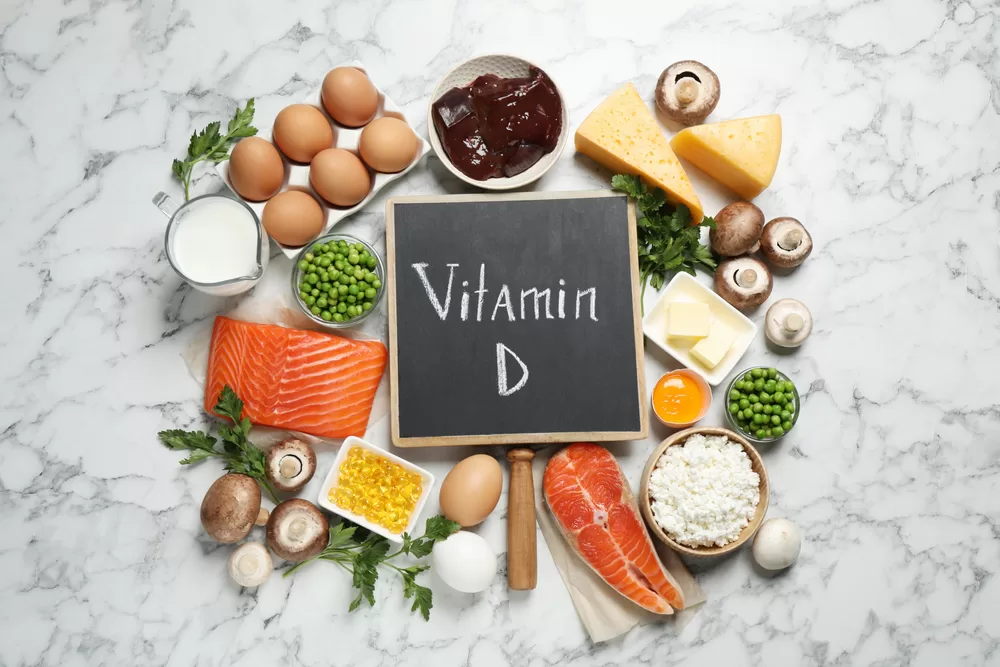Discovering Foods That Can Boost NAD+ Levels
08/21/2023

NAD+ (nicotinamide adenine dinucleotide) is a molecule that plays a crucial role in our bodies. It is involved in various biological processes, from energy production to DNA repair. Maintaining optimal levels of NAD+ is essential for overall well-being and healthy aging. But did you know that you can increase your NAD+ levels by incorporating certain foods into your diet? Let's dive into the fascinating world of NAD+ and explore some delicious ways to enhance its levels naturally!

Understanding the Role of NAD+ in the Body
NAD+ is like a superhero within our cells, working tirelessly to keep our bodies functioning optimally. It plays a vital role in energy metabolism, DNA repair, and even the regulation of our circadian rhythm. Without sufficient NAD+, our cells would struggle to produce energy efficiently and carry out essential repair processes.
So, how does NAD+ accomplish all these incredible tasks? Well, it's involved in two critical cellular processes: glycolysis and oxidative phosphorylation. Glycolysis is the process by which glucose is broken down to produce energy, while oxidative phosphorylation occurs in the mitochondria and is responsible for generating adenosine triphosphate (ATP), the energy currency of our cells.
Let's dive deeper into the role of NAD+ in energy metabolism. When glucose enters our cells, it undergoes a series of chemical reactions known as glycolysis. During glycolysis, glucose is broken down into smaller molecules, releasing energy in the process. NAD+ acts as a coenzyme in this process, accepting electrons from the breakdown of glucose and becoming reduced to NADH. This NADH can then be used in the next step of energy production, oxidative phosphorylation, to generate ATP.
Oxidative phosphorylation takes place in the mitochondria, often referred to as the powerhouse of the cell. Within the mitochondria, NADH donates its electrons to a series of protein complexes, creating a flow of electrons. This flow of electrons drives the pumping of protons across the mitochondrial membrane, creating an electrochemical gradient. Finally, this gradient is used by ATP synthase to produce ATP, the molecule that fuels all cellular processes.
But NAD+ doesn't stop at energy metabolism. It also plays a crucial role in DNA repair. Our DNA is constantly under attack from various sources, such as radiation and chemical agents. These attacks can cause DNA damage, which, if left unrepaired, can lead to mutations and potentially diseases like cancer. NAD+ is involved in a process called base excision repair, where damaged DNA bases are removed and replaced with new ones. This repair process helps maintain the integrity of our genetic material and ensures proper cellular function.
Additionally, NAD+ is vital for the activity of certain enzymes called sirtuins, which play a role in regulating gene expression and cellular metabolism. Sirtuins are involved in a wide range of cellular processes, including DNA repair, inflammation control, and stress response. They help keep our cells healthy and functioning optimally, allowing us to age gracefully and maintain our youthful vitality.
In conclusion, NAD+ is an essential molecule that serves as a key player in energy metabolism, DNA repair, and cellular regulation. Its involvement in glycolysis and oxidative phosphorylation ensures efficient energy production, while its role in DNA repair helps maintain the integrity of our genetic material. Furthermore, NAD+ supports the activity of sirtuins, which have a broad impact on cellular health and longevity. Understanding the multifaceted role of NAD+ in the body highlights its importance in maintaining overall well-being.
The Connection Between Diet and NAD+ Levels
Now that we understand the significance of NAD+ in our bodies, let's explore how our diet can impact its levels. While NAD+ can be synthesized within our cells, some nutrients play a crucial role in its production. By consuming foods rich in these nutrients, we can support our bodies' natural ability to produce NAD+.
The Impact of Nutrient Intake on NAD+ Production
One of the key nutrients involved in NAD+ production is niacin, also known as vitamin B3. Our bodies can convert niacin into a molecule called nicotinamide, which is then utilized in the synthesis of NAD+. Foods like poultry, fish, and mushrooms are excellent sources of niacin, making them valuable additions to a NAD+-boosting diet.
Niacin plays a vital role in energy production and DNA repair, both of which are essential for maintaining optimal cellular function. When our bodies lack sufficient niacin, it can lead to a decrease in NAD+ levels, compromising various biological processes.
In addition to niacin, another nutrient that influences NAD+ production is tryptophan, an essential amino acid found in protein-rich foods like turkey, chicken, and eggs. Tryptophan can be converted into niacin through a series of metabolic pathways, ultimately contributing to the production of NAD+. So, don't forget to include some protein sources in your quest for enhanced NAD+ levels.
Furthermore, tryptophan also plays a crucial role in the production of serotonin, a neurotransmitter that regulates mood, sleep, and appetite. Adequate levels of serotonin are essential for overall well-being, and its synthesis relies on the availability of NAD+. Therefore, maintaining a diet rich in tryptophan can have a positive impact on both NAD+ levels and mental health.
Foods That Can Inhibit NAD+ Levels
While we're on the topic of diet and NAD+ levels, it's essential to consider the flip side as well. Just as certain foods can boost NAD+, some may inhibit its production. One such example is excessive alcohol consumption.
Alcohol is metabolized in our bodies through a process that consumes NAD+. This can lead to a decrease in NAD+ availability and compromise its crucial functions. Chronic alcohol abuse has been shown to deplete NAD+ levels, contributing to various health issues, including liver damage and impaired cellular function.
It's important to note that moderate alcohol consumption may not have a significant impact on NAD+ levels. However, excessive and prolonged alcohol intake can disrupt the delicate balance of NAD+ in our bodies, leading to detrimental effects on overall health.
Therefore, if you're striving for optimal NAD+ levels, it's wise to moderate your alcohol intake and focus on more nourishing options instead. By prioritizing a diet rich in niacin, tryptophan, and other essential nutrients, you can support your body's natural production of NAD+ and promote overall well-being.
Top Foods That Can Enhance NAD+ Levels
Now that we know which nutrients are involved in NAD+ synthesis, let's explore some specific foods that can help boost its levels naturally. These delicious additions to your diet can provide the building blocks necessary for optimal NAD+ production.

The Benefits of Green Vegetables and NAD+
When it comes to NAD+ boosters, green vegetables are leafy green gems packed with essential nutrients. Spinach, kale, and broccoli, to name a few, are rich in niacin and other vitamins necessary for NAD+ synthesis.
These vibrant greens also contain an abundance of antioxidants, which can help protect NAD+ from oxidative stress. So, next time you're preparing a meal, don't forget to load up on these vibrant veggies to give your NAD+ levels a nourishing boost!
The Role of Fish and Lean Meats in Boosting NAD+
Fish and lean meats don't just tantalize our taste buds; they can also promote healthy NAD+ levels. These protein sources are not only rich in niacin but also contain tryptophan, which can be converted into niacin and ultimately contribute to NAD+ synthesis.
Salmon, tuna, chicken breast, and turkey are all fantastic options to consider. They offer a wide array of nutrients while supporting the production of NAD+. So, embark on a culinary adventure with these delicious proteins, and let your NAD+ flourish!
Fruits and Nuts: A Natural Source of NAD+ Boosters
When it comes to satisfying our sweet tooth while nourishing our bodies, fruits and nuts are an ideal choice. Blueberries, strawberries, and raspberries are not only bursting with flavor but also contain compounds that can help enhance NAD+ levels.
Nuts like almonds and peanuts are also excellent additions to your NAD+-boosting arsenal. They provide niacin, tryptophan, and other nutrients that support optimal NAD+ production. So, go ahead and indulge in a fruit and nut medley to supercharge your NAD+ levels naturally!
Incorporating NAD+ Boosting Foods into Your Diet
Now that we've explored some incredible NAD+-boosting foods, let's discuss how we can incorporate them into our daily lives effectively.
Creating a Balanced Diet for Optimal NAD+ Levels
The key to successfully integrating NAD+ boosting foods into your diet is to create a balanced meal plan. Build your meals around a variety of nutrient-rich foods, including lean proteins, colorful fruits and vegetables, whole grains, and healthy fats.
Ensure that you're getting ample servings of niacin-rich foods like poultry, fish, and mushrooms, as they provide the necessary raw materials for NAD+ synthesis. By maintaining a well-rounded diet, you'll nourish your body while supporting the production of this essential molecule.
Tips for Preparing NAD+ Rich Meals
Preparing meals that promote NAD+ production can be a joyous experience. Get creative in the kitchen and experiment with recipes that incorporate NAD+ boosting ingredients. For example, you might try whipping up a spinach and mushroom omelet for breakfast or grilling salmon with a side of roasted vegetables for dinner.
You can also combine fruits and nuts in colorful salads or blend them into nutrient-packed smoothies. The possibilities are endless, and your taste buds are in for a treat!
Potential Risks and Considerations
While incorporating NAD+-boosting foods into your diet can have numerous benefits, it's essential to approach the topic with a balanced perspective. Let's explore some potential risks and considerations associated with NAD+ supplementation through diet.
Overconsumption and Potential Side Effects
While a diverse diet can support optimal NAD+ levels, it's crucial not to overconsume certain nutrients. Excessive intake of niacin, for example, can lead to unpleasant side effects such as flushing, itching, and gastrointestinal distress.
Additionally, it's essential to keep in mind that diet alone might not be sufficient to dramatically increase NAD+ levels in certain individuals. Factors such as genetics, age, and overall health can influence the body's ability to produce and utilize NAD+. If you have concerns about your NAD+ levels, consulting with a healthcare professional can provide valuable insights tailored to your specific needs.
Understanding the Limitations of Diet in NAD+ Production
While incorporating NAD+ boosting foods into your diet is an excellent step toward optimal health, it's important to remember that diet is just one piece of the puzzle. Lifestyle factors like regular exercise, quality sleep, stress management, and avoiding excessive alcohol consumption are also crucial for maintaining healthy NAD+ levels.
Additionally, the body's ability to produce NAD+ declines naturally with age. While diet can help support its levels to some extent, supplementation may be necessary for individuals with lower NAD+ production due to aging or certain health conditions.
Conclusion
In conclusion, discovering foods that can boost NAD+ levels is like uncovering a hidden treasure trove of health and vitality. By incorporating niacin-rich foods like poultry, fish, and mushrooms, along with protein sources like turkey, chicken, and eggs, we can provide our bodies with the essential building blocks for NAD+ production.
Adding vibrant fruits, vegetables, and nuts to our meals not only enriches our palate but also supports NAD+ levels. Remember to embark on a culinary adventure and enjoy the process of creating NAD+-boosting meals!
However, it's crucial to maintain a balanced perspective and understand that diet alone might not be sufficient for everyone. By considering the limitations of diet and incorporating other lifestyle factors like exercise and stress management, we can embark on a holistic journey toward optimal health and well-being!

 Back to Blog
Back to Blog